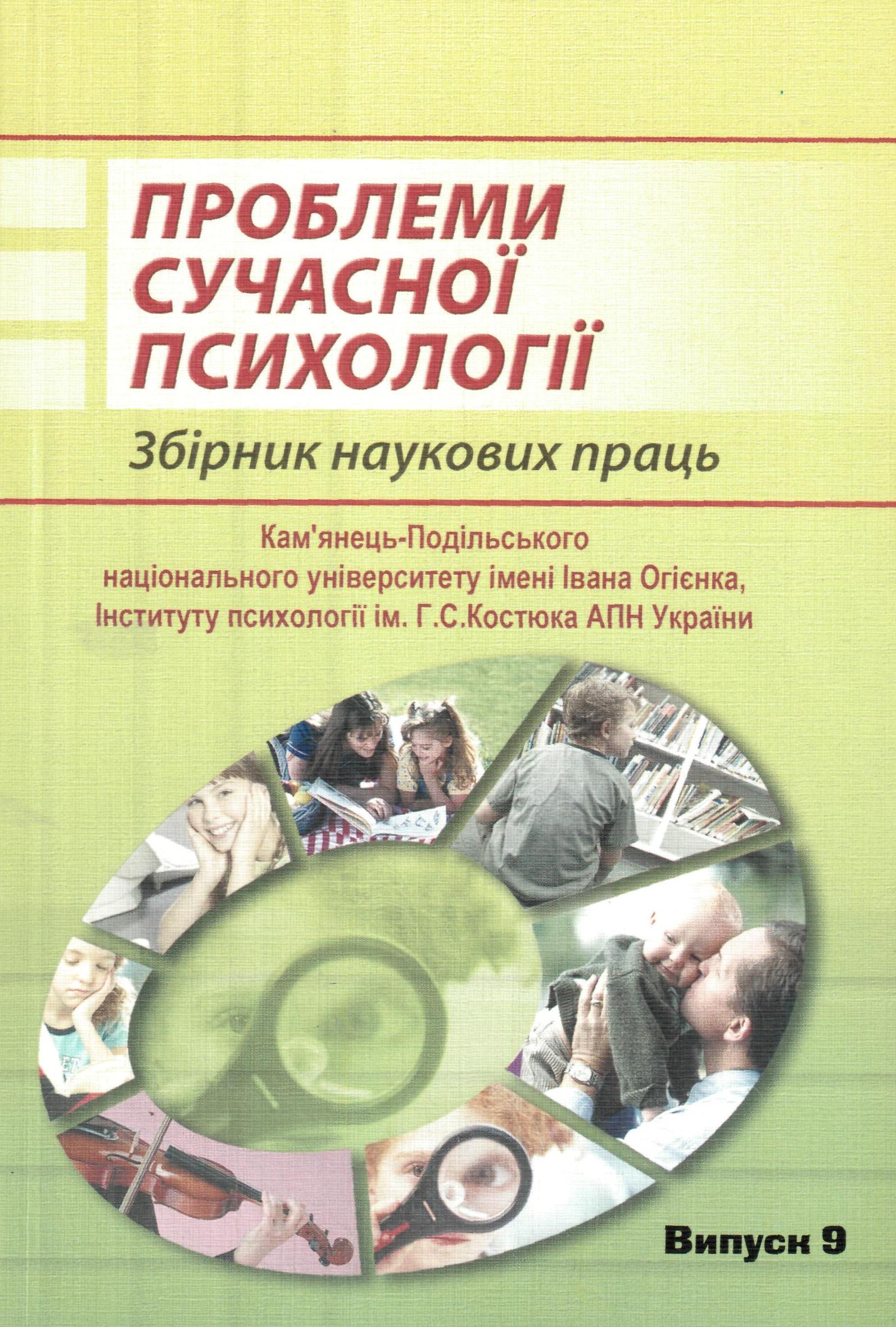Інтелектуально пасивні школярі як причина низької результативності в учінні
DOI:
https://doi.org/10.32626/2227-6246.2010-9.%25pКлючові слова:
інтелектуальна пасивність, низька результативність в учінні, молодший школяр, пасивна орієнтація у поведінці.Анотація
У статті розглянуто основні провідні принципи інтелектуальної
пасивності школярів. Визначено основні види та групи дітей з різною
інтелектуальною пасивністю, труднощами в учінні. Описано психологічні
особливості пасивної орієнтації в поведінці молодших школярів.
Запропоновано основні форми роботи.
Посилання
Бех І.Д. Особистісно зорієнтоване виховання: шляхи
реалізації // Рідна школа. – 2000. – № 1. – С. 10 14.
Богоявленский Д.М., Менчинская И.А. Психология
усвоения знаний в школе. – М.: Изд. АПН РСФСР, 1959. –
с.
Божович Л.И. Личность и ее формирование в детском
возрасте. – М., 1968. – С. 247 283.
Липкина А.И. К вопросу о методах выявления самооценки
как личностного параметра умственной деятельности //
Проблемы диагностики умственного развития учащихся. –
М., 1975. – 44 с.
Матюхина М.В. Мотивація навчання молодших школярів. –
М.,1984.
Матюшкин А.М. Психологічна структура, динаміка й
розвиток пізнавальної активності//Питання психології.
– №4. – С.5 17.
Менчинская Н.А. Обучение и умственное развитие //
Материалы к симпозиуму “Обучение и развитие” / Под ред.
Н.А. Менчинской и др. – М.: Просвещение, 1966. – С. 5 8.
Орлова Л. В. Що таке інтелектуальна пасивність?//
Початкова школа. – 1996. – №7. – С.26 29.
Платонов К.К. Краткий словарь системы психологических
понятий. – М.:Высшая школа, 1984. – 174 с.
Славина Л.С. Важкі діти / За редакцією В.Є.Чуднівського. –
М., Воронеж, 1998. – 447 с.
Юркевич В.С. Розвиток початкових рівнів пізнавальної
потреби школяра//Питання психології. – 1980. – №2. –
С.83 92.
##submission.downloads##
Як цитувати
Номер
Розділ
Ліцензія
Редакція має повне право публікувати у Збірнику оригінальні наукові статті як результати теоретичних і експериментальних досліджень, які не знаходяться на розгляді для опублікування в інших виданнях. Автор передає редколегії Збірника права на розповсюдження електронної версії статті, а також електронної версії англомовного перекладу статті (для статей українською та російською мовою) через будь-які електронні засоби (розміщення на офіційному web-сайті Збірника, в електронних базах даних, репозитаріях та ін).
Автор публікації зберігає за собою право без узгодження з редколегією та засновниками використовувати матеріали статті: а) частково чи повністю в освітніх цілях; б) для написання власних дисертацій; в) для підготовки абстрактів, доповідей конференцій та презентацій.
Автор публікації має право розміщувати електронні копії статті (у тому числі кінцеву електронну версію, завантажену з офіційного web-сайту Збірника) на:
- персональних web-ресурсах усіх Авторів (web-сайти, web-сторінки, блоги тощо);
- web-ресурсах установ, де працюють Автори (включно з електронними інституційними репозитаріями);
- некомерційних web-ресурсах відкритого доступу (наприклад, arXiv.org).
Але в усіх випадках обов’язковою є наявність бібліографічного посилання на статтю або гіперпосилання на її електронну копію, що містяться на офіційному сайті Збірника.






